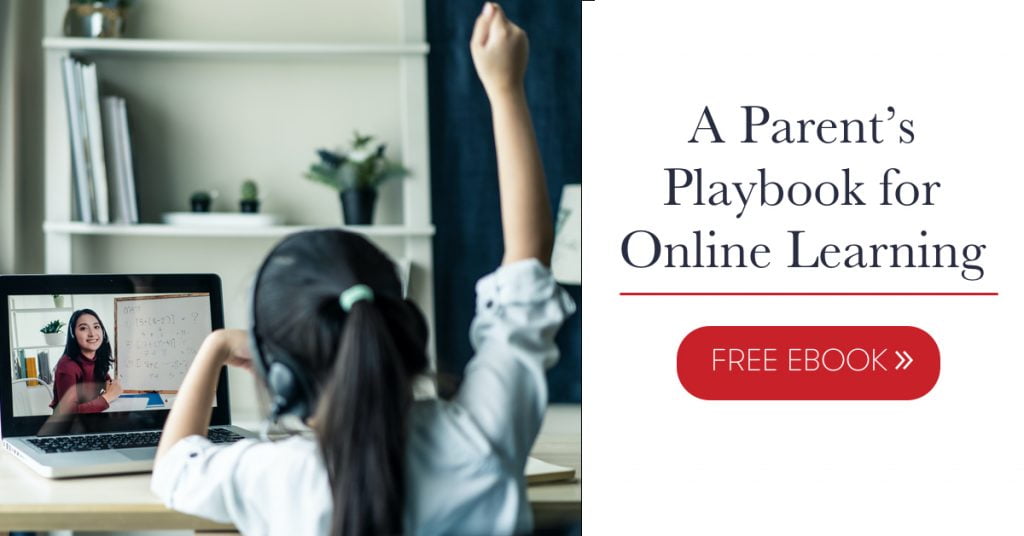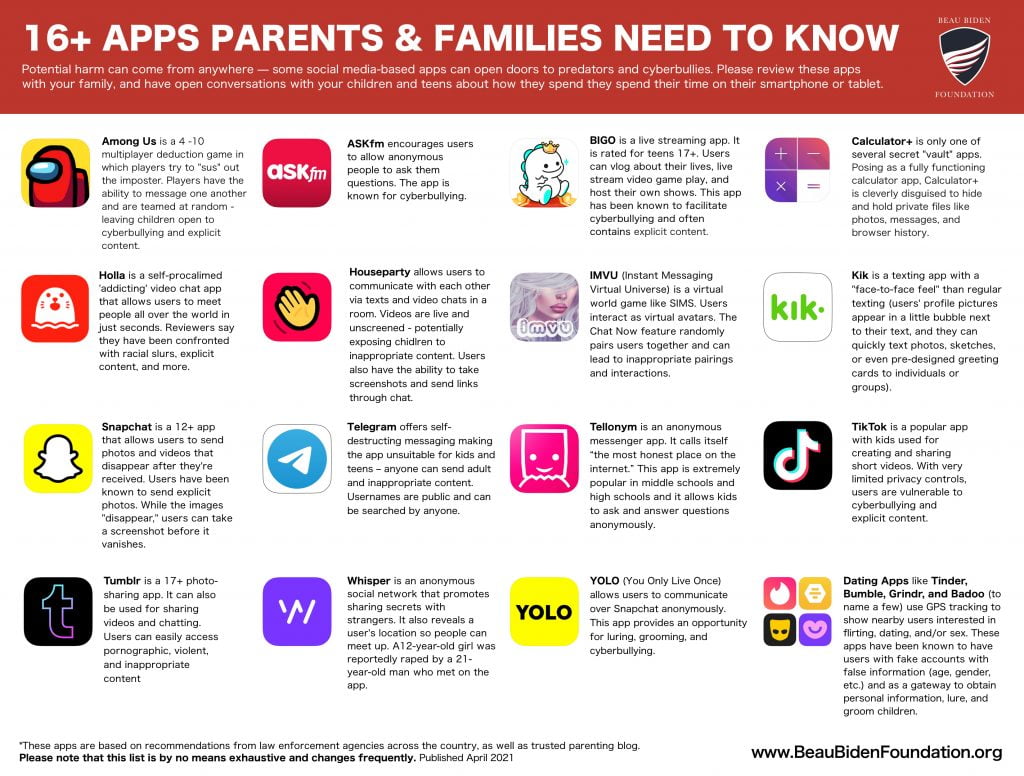Since the onset of smartphones and Internet-ready devices, apps have been our touchstone to the world through games, access to information, and social media. But many of these apps open the door to the 500,000 predators online each day.
Facebook and its subsidiaries (WhatsApp and Instagram), along with Twitter and YouTube are among the more obvious apps that come to mind – and ones to be mindful of – when thinking about exchanging harmful or abusive messages or sharing inappropriate images and video.
In today’s virtual marketplace there are a wide array of seemingly harmless apps that child predators and cyberbullies are using to reach their victims. Keeping up with the latest apps can seem like playing Whack-a-mole – as they pop up, they may be gone as soon as you see them. However, it is imperative that adults do their best to know and learn about the apps children use the most and their potential threat to the safety of children and teens.
To help parents and families do just that, we have curated a list of 16+ Apps Parents and Families Need to Know to help keep children safe. These apps are based on recommendations from law enforcement agencies across the country, as well as trusted parenting blogs. Please note that this list is by no means exhaustive (and may change next week – or even tomorrow).
Why these apps? The major concern and precaution here is accessibility to children. “Stranger danger” is not a thing of the past. Instead of lurking around the corner in an unmarked van and offering candy, predators are also hiding behind their screen, pretending to be a child or teen so they can lure and groom actual children for very real abuse. Some of these apps can even provide a predator with a child’s exact location.
Many of these apps have also been known to incite and encourage cyberbullying – some of which have been linked to child and teen suicide, like that of 12-year-old Rebecca Sedwick in 2013.
Over the next few weeks, we will take a deeper dive into each of the potential dangers these apps – and others like them – pose to children and teens, and how you can help keep them safe.
But, knowing these apps is just the first step in helping protect children from child predators and cyberbullies. Next, continued and age-appropriate conversations about online safety is critical in shielding children. If you’re not already having them, click here to learn how to get those conversations started.
If a child or a teen is in immediate danger, please call 911 and report the suspected abuse to your local child abuse hotline. Click here to find your local abuse hotline.

Online Workshop — Protecting Children in a Virtual Learning Environment
It is critical for teachers, mentors, and coaches to know how to recognize the signs of abuse and neglect both in-person and through virtual interaction. You can help protect children with our online abuse prevention workshops for educators and youth-serving professionals — Protecting Children in a Virtual Learning Environment. Register now at www.BeauBidenFoundation.org/Workshops.

A Parent’s Playbook: Tips for Online Learning
If you have or know a child learning online, you’re in the right place. This free eBook – A Parent’s Playbook: Tips for Online Learning – contains the three most important conversations you need to have to protect a child. Click here to download it now.

